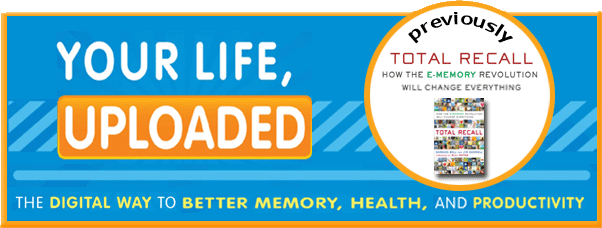SIGMM CARPE page - archived here
 Friday, December 3, 2010 at 3:45PM
Friday, December 3, 2010 at 3:45PM SIGMM seems to have changed their website and deleted member and research area pages. So, to preserve the SIGMM CARPE page, I am posting it here.
CARPE RESEARCH AREA
Personal storage of all one's media throughout a lifetime has been desired and discussed since at least 1945, when Vannevar Bush published As We May Think, positing the "Memex" device "in which an individual stores all his books, records, and communications, and which is mechanized so that it may be consulted with exceeding speed and flexibility." His vision was astonishingly broad for the time, including full-text search, annotations, hyperlinks, virtually unlimited storage and even stereo cameras mounted on eyeglasses. In 2004, storage, sensor, and computing technology have progressed to the point of making Memex feasible and even affordable. Indeed, we can now look beyond Memex at new possibilities. In particular, while media capture has typically been sparse throughout a lifetime, we can now consider continuous archival and retrieval of all media relating to personal experiences.
CARPE research is very broad, including the following topics:
- Capture/sensors (e.g., scanning, wearable, embedded, different kinds of sensors, robotic assistance), experiential sampling.
- Data storage, management, organization and retrieval
- Insight: content analysis and data mining
- User interface issues, including: visualization, authoring, story-telling, annotation
- Applications: e.g., personal museum, health-support, childcare, research tools, meeting capture.
- Security, privacy, and legal issues
The first workshop title used the word "continuous" rather than "capture". After some reflection, we decided "capture" was better, because we wanted to include research that was not continuous in nature, but still made an important contribution to the study of lifelong experience capture.
CARPE Workshop
Links to past workshops: CARPE 2004 CARPE 2005 CARPE 2006
Mailing List
Click here to see postings to the CARPE mailing list and for subscription instructions
Microsoft Research Digital Memories (Memex) Funding Program
Microsoft Research has now announced the winners of the Digital Memories (Memex) request for proposals, which includes funding, hardware, and software.
Links
As We May Think, by Vannevar Bush, The Atlantic Monthly, 176(1), July 1945, 101-108.
Aware Home
CARPE 2004 Workshop
DARPA: ASSIST Lifelog
Deja View
Designing for Collective Remembering Workshop
eChronicle 2006 Workshop
Exploiting Context Histories In Smart Environments (ECHISE) Workshop 2005
Experiential Personal Information Management
Eyeblog
Eyetap
Forget-me-not
Gray Turing Award Lecture, including "Personal Memex"
Haystack
iMeMex
Interaction Media
I Sensed
Keeping Things Found
Lifestreams Scopeware (based on LifeStreams)
Memories for Life grand challenge proposal (UK) Memories for Life Colloquium Dec 12, 2006.
Memory and Sharing of Experience Workshop
MyLifeBits
NSF PIM Workshop Jan 2005
OLIVER (in the 2nd paper of this file: "The Computer as a Communication Device" by Licklider and Taylor)
PERMM & Shoebox
Pervasive 2004 Workshop on Memory and Sharing of Experiences
Reality Mining Group @ MIT
Remembrance Agent
Stuff I've Seen
Teddy (Donald Norman, 1992)
Time-Machine Computing
Total Recall
What Was I Thinking?
Xanadu Ted Nelson Udanax
Product Links:
Alive
BodyMedia
Quindi
Tactex
Are we missing a good link? Click to send email suggesting a link!
Related Science Fiction
Books
Hominids, by Robert J. Sawyer: The body-implanted "companion" computer transmits "information about my location, as well as three-dimensional images of exactly what I am doing" to the "alibi archives".
The Truth Machine, by James Halperin: A scientist develops the perfect lie-detector, which changes criminal justice and people's behavior. There is also personal recording, and people have to make a point to meet off the record.
The Observers, by S. Gill Williamson: "In Jurassic time ... a reclusive alien civilization of micorobotic natural historians arrived on earth. Unnoticed, they have recorded the earth's history in magnificent detail." People in the book grapple with being watched and recorded. The aliens are able to copy all of the information related to a person to create a virtual person, raising the issue of digital immortality.
Movies
The Final Cut, directed by Omar Naim and starring Robin Williams. In the near future, people can have implants that record their life from their perspective. When they die, the implant is removed and a "cutter" edits the material to make a movie for the funeral.
Contacts
This page is administered by Jim Gemmell and Sunil Vemuri
 carpe
carpe 
Reader Comments